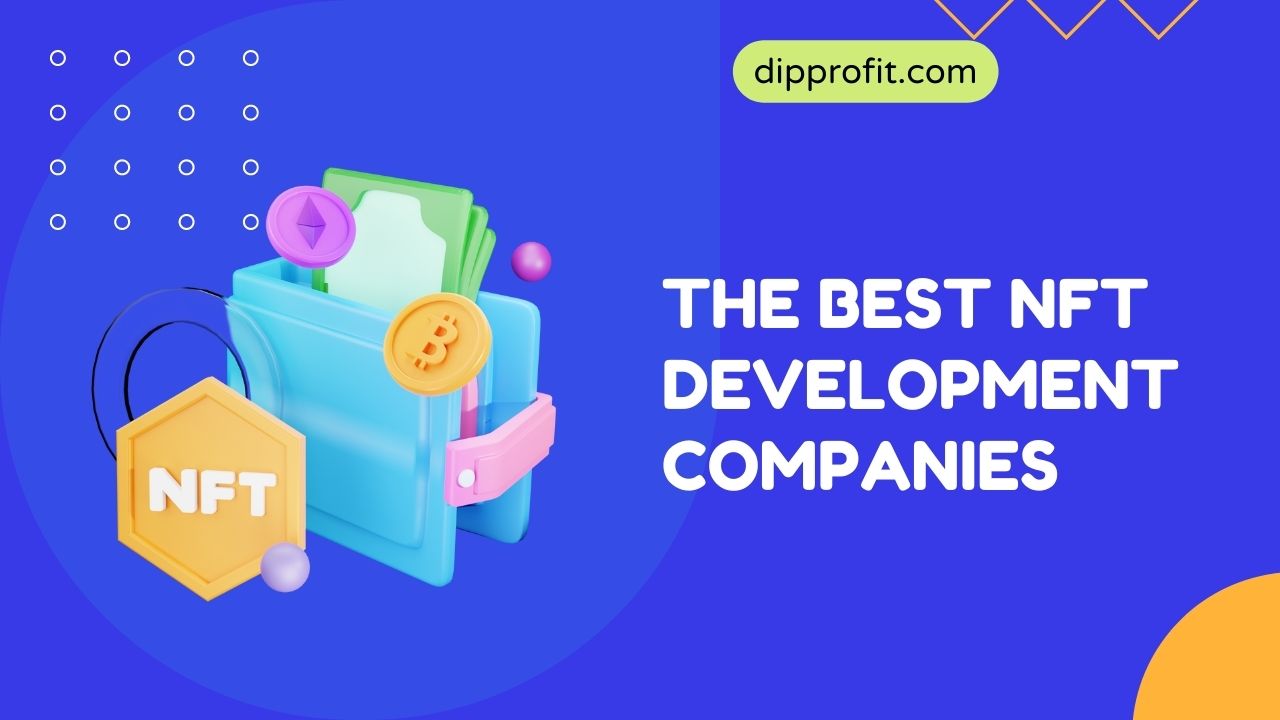
Have you ever collected trading cards, like Pokémon or baseball cards?
Well, NFTs are a bit like that, but they are digital! NFT stands for Non-Fungible Token.
Non-what? Don’t worry, it’s not as complicated as it sounds.
In this post, we’ll explore all about NFTs, how they work, who creates them, and the NFT development companies involved in the process.
So strap on, it’s going to be a long ride.
How do NFTs work?
To define this, I’ll list the four primary ways NFTs work.
- Creating the NFT: First, an artist or creator decides to turn their digital item into an NFT. They use special technology called blockchain to create a unique token that represents that item.
- Tokenizing the Item: The digital item is “tokenized” by linking it to the created NFT. Think of it as attaching a special tag to the item that shows it’s the original and can’t be duplicated.
- Verifying Ownership: Once the NFT is created and the digital item is tokenized, the blockchain records who owns the NFT. It’s like having your name on the back of a trading card to show that it’s yours.
- Buying and Selling NFTs: People can buy and sell NFTs on special online platforms called NFT marketplaces. When someone buys an NFT, they gain ownership of that unique digital item associated with the NFT.
Who creates NFTs?
NFTs are created by artists, musicians, game developers, and many other creative people. Most times, these people form groups and call themselves an agency or an NFT development company to attract more and better clients to pay for their services.
They use their creativity to make amazing artwork, music, videos, or even virtual items for games.
Some NFTs come as an inspiration or extension of existing physical artwork, giving artists the space and opportunity to digitize their creations and offer them as unique digital assets.
Others are specifically designed and crafted solely for the digital space, taking advantage of blockchain technology’s unique properties and possibilities.
After these creators use special applications to design and mint their NFTs, it is typically sold or auctioned on various NFT marketplaces, where collectors and enthusiasts can purchase them using cryptocurrencies, usually Ethereum.
These marketplaces serve as platforms for creators to showcase and sell their NFTs to interested buyers.
See also: 7 Best NFT Marketplaces to Buy and Sell in 2023
What is a Development Company?
A Development Company is a group of experts who work together to create something amazing. In the case of NFTs, a Development Company specializes in creating and managing these unique digital collectibles.
They have a team of talented individuals who understand the technical aspects of blockchain technology and the intricacies of NFT creation for clients.
They work closely with artists, creators, and businesses to help them turn their digital creations into NFTs.
How about NFT development companies? What do they specifically do?
What does an NFT Development Company do?
The primary role of an NFT Development Company is to help artists and creators turn their digital creations into NFTs.
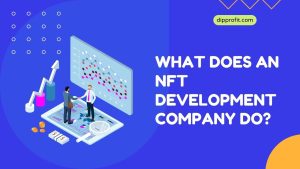
They assist in the process of digitizing the artwork, music, videos, or any other digital content, to make sure it represents the original creation that was given to them.
Other works or details they might be handling to maximize the potential of the digital creations include:
- Smart Contract Development: NFTs are built on blockchain technology, and many NFT Development Companies specialize in creating the underlying smart contracts that power these digital assets and how they operate. They write the code that defines the rules, ownership, and transferability of the NFTs.
- Security and Authentication: Ensuring the security and authenticity of NFTs is vital. Development Companies implement robust security measures to protect the NFTs from being tampered with or counterfeited. They establish mechanisms to authenticate the ownership and provenance of each NFT as unique.
- Integration with Marketplaces: They also help by listing the NFTs on popular NFT marketplaces for sale, auction, or distribution. They ensure that the NFTs are properly listed, visible, and easily accessible to potential buyers. This helps artists and creators reach a broader audience and enables collectors to discover and acquire NFTs.
- Consultation and Support: These NFT development companies also provide consultation services to creators, and businesses interested in entering the world of NFTs and knowing more about the web3 space as a whole. Although it is not their main purpose, guidance on best practices, market trends, pricing strategies, and helps clients make informed decisions regarding their NFT projects. They can also provide ongoing technical support to address any issues or questions that may arise.
See also: Revealed: How NFT Marketplaces Make Money
How Are NFTs Created?
Creating an NFT is like casting a magic spell.
The Development Company involved in the project takes a digital item, like a picture or a video, and turns it into a special token on the blockchain.
It could be a stunning piece of artwork, a catchy music track, an entertaining video, or even a virtual item for a game.
After this is done, the development company involved determines the blockchain platform on which the NFT will be built.
Ethereum is currently the most popular blockchain for NFTs, but there are other options available too.
After which the metadata and other important attributes about the NFT will be added as well and then minted.
Once the NFT is minted, ownership is recorded on the blockchain and then it can be displayed on marketplaces.
Why Are NFTs Special?
NFTs are special because they give artists and creators a new way to share and sell their work. Before NFTs, it was hard for digital artists to prove that their creations were unique. But now, with NFTs, they can create one-of-a-kind digital items and sell them to collectors.
For instance, imagine a digital artist that wants to join a photo contest but she doesn’t want anyone to claim her style as theirs. Let’s call her Kate.
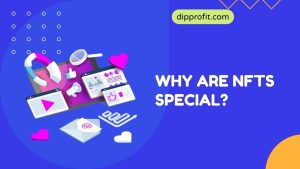
So, in a situation like this, Kate goes to an NFT development company to help create an NFT of her artwork (the digital photograph) and upload it to a blockchain platform.
By minting her artwork as an NFT, Kate can establish its authenticity, uniqueness, and ownership of that particular artwork.
Later at the auction when Kate sells her NFT, the buyer receives a digital token that represents the ownership of that specific piece of artwork.
Since it is recorded on the blockchain, no one else can claim ownership of the original artwork or create exact replicas without the artist’s consent.
Moreover, NFTs can extend beyond traditional artwork to encompass various digital assets, including music, videos, virtual real estate, in-game items, and even virtual experiences.
This is one important instance where an NFT development company can come in handy. Next, we’ll take a look at finding a good NFT development company, why they are important, and the best ones at their game.
See also: Which NFT Wallet is Best this year 2023?
Finding a Good NFT Development Company
Finding a good NFT Development Company is very important when you want to create and manage your NFTs. Here are some steps to help you find a reliable and capable company:
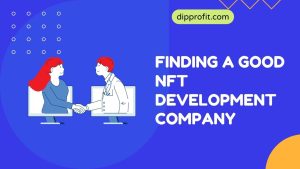
- Research: Start by researching different NFT Development Companies. Look for reputable companies with a track record of successful NFT projects. Explore their websites, portfolios, and case studies to get an understanding of their expertise and the quality of their work.
- Client Reviews: Read client reviews and testimonials to gauge the satisfaction level of their previous clients. This can give you insights into their professionalism, communication skills, and ability to deliver on their promises.
- Expertise and Services: Assess the company’s expertise and the range of services they offer. Do they have experience in NFT creation, smart contract development, security measures, marketplace integration, and ongoing support? A comprehensive set of services indicates their proficiency in handling all aspects of NFT development.
- Portfolio Evaluation: Review their portfolio of previous NFT projects. If they have worked on projects similar to yours and whether their style aligns with your vision. Assess the quality and creativity of their NFT designs, the user experience they deliver, and the success of their previous projects.
- Security and Blockchain Expertise: NFTs rely on blockchain technology, so ensure that the company has a strong understanding of blockchain and implements robust security measures to protect your NFTs. They should be able to explain their security protocols and demonstrate their commitment to safeguarding your digital assets.
- Cost and Budget: Consider your budget and evaluate the cost of the services provided by different NFT Development Companies. While it’s important to find a company that fits your budget, prioritize quality and expertise over cost alone. Remember, investing in a reputable and skilled company can yield better results in the long run.
- Consultation and Support: A good company will provide ongoing support even after the NFT development process is complete. Reach out to the shortlisted companies for a consultation. Assess their responsiveness, willingness to answer your questions, and their ability to provide tailored solutions based on your requirements.
By following these steps, you can find a reliable and capable NFT Development Company that can bring your NFT ideas to life while also running a successful campaign for your business.
Benefits of NFT Development Companies
NFT Development Companies offer several benefits for artists, creators, and businesses looking to enter the world of NFTs. Here are some key advantages:
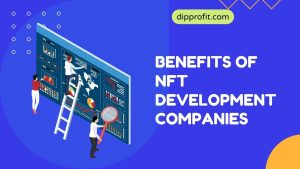
Expertise and Technical Knowledge: NFT Development Companies have specialized expertise in blockchain technology and the intricacies of NFT creation. They understand the technical aspects of smart contracts, tokenization, and blockchain integration, ensuring that the NFTs they create are secure, authentic, and of high quality.
Efficiency: Developing NFTs can be a complex process, but with the help of an NFT development company to handle the tedious work, artists, and creators can save time and effort. The company takes care of the technical aspects, allowing creators to focus on their artistic vision and content creation.
Design and Aesthetics: NFT Development Companies often have talented designers who can enhance the visual appeal of NFTs. They can create captivating digital artwork, refine metadata, and provide suggestions to make the NFTs more attractive and marketable.
Marketplace Integration: NFT Development Companies assist in integrating NFTs with various marketplaces and platforms. They have knowledge of popular NFT marketplaces, their requirements, and best practices for listing and promoting NFTs.
The Top NFT Development Companies
Now that we understand the meaning of NFT development companies, their benefits in the NFT space, and also how to find a good NFT development company, just in case you are looking to create your personal NFTs, we will be giving you our preferred list of the top NFT development companies out there. The top NFT development companies for Dipprofit are:
- Appdupe
- Blockchain App Factory
- Turnkey Town
- Infinite Block Tech
- Chaincella
- Ediiie
Appdupe:
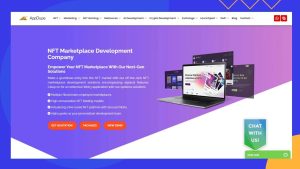
Known for its expertise in NFT development, Appdupe has more than a decade of experience and a strong portfolio of more than 250 completed projects. In addition to providing services including NFT marketplace creation, white-label NFT marketplace solutions, NFT lending platforms, and others, they are experts at developing distinctive NFTs.
Blockchain App Factory:
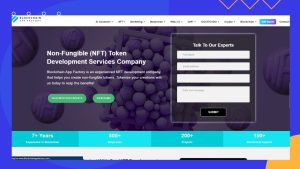
With over 200 successful projects under its belt, Blockchain App Factory is famous for providing NFT solutions that are specifically crafted to meet the demands of each customer and the market. They offer a variety of services, including the creation of white-label NFT marketplaces, launchpads, wallets, and more.
Turnkey Town:
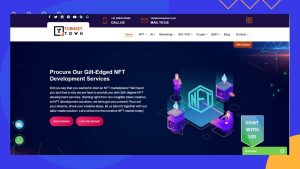
Turnkey Town is known for its proficiency in NFT development and has a team of over 150 talented blockchain developers. Their offerings include creating NFT marketplaces, NFT gaming platforms, NFT music marketplaces, and more.
Infinite Block Tech:

Infinite Block Tech provides a variety of development and marketing options, including NFT development. They specialize in developing NFT marketplaces, NFT gaming platforms, NFT wallets, and other related services.
Chaincella:
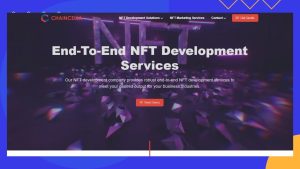
Chaincella has proven its expertise in blockchain technology and has established itself as one of the leading NFT development companies. They offer solutions for NFT staking platforms, NFT aggregators, and white-label NFT marketplace development.
Ediiie:

Ediiie is a prominent NFT development company that offers empowering solutions for NFT creation. Their services encompass NFT marketplace development, NFT game development, and NFT marketing.
See also: Easy Steps to Buying NFTs from Crypto.com NFT Marketplace, Fees & Full Overview
Challenges in NFT Development
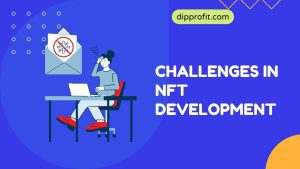
Gas Fees and Energy Consumption: NFT transactions on blockchain networks often incur gas fees, which are required to execute smart contracts and record transactions. High gas fees can make NFT creation and trading expensive, limiting accessibility for artists and buyers. Additionally, the energy consumption associated with blockchain networks raises concerns about the environmental impact of NFTs.
User Experience and Adoption: Improving the user experience is crucial for the widespread adoption of NFTs. Simplifying the process of minting, buying, and selling NFTs is essential to attract artists, collectors, and mainstream users. Creating intuitive interfaces and user-friendly platforms that hide the complexities of blockchain technology can help overcome adoption barriers.
Copyright and Ownership Verification: NFTs represent ownership of unique digital assets, but verifying the originality and authenticity of these assets can be challenging. Ensuring proper copyright protection and addressing issues of plagiarism and intellectual property infringement require careful attention and robust mechanisms for verification.
Regulatory and Legal Considerations: The regulatory landscape surrounding NFTs is still evolving. Developers must navigate legal considerations related to intellectual property rights, taxation, securities regulations, and compliance with local laws. Staying informed about the legal implications and adapting to changing regulations is vital for sustainable NFT development.
Market Saturation and Quality Control: With the growing popularity of NFTs, the market is becoming saturated with a wide range of offerings. Standing out among the competition and maintaining quality control is essential. Ensuring that NFTs have intrinsic value, unique attributes, and relevance to the target audience is crucial for long-term success.